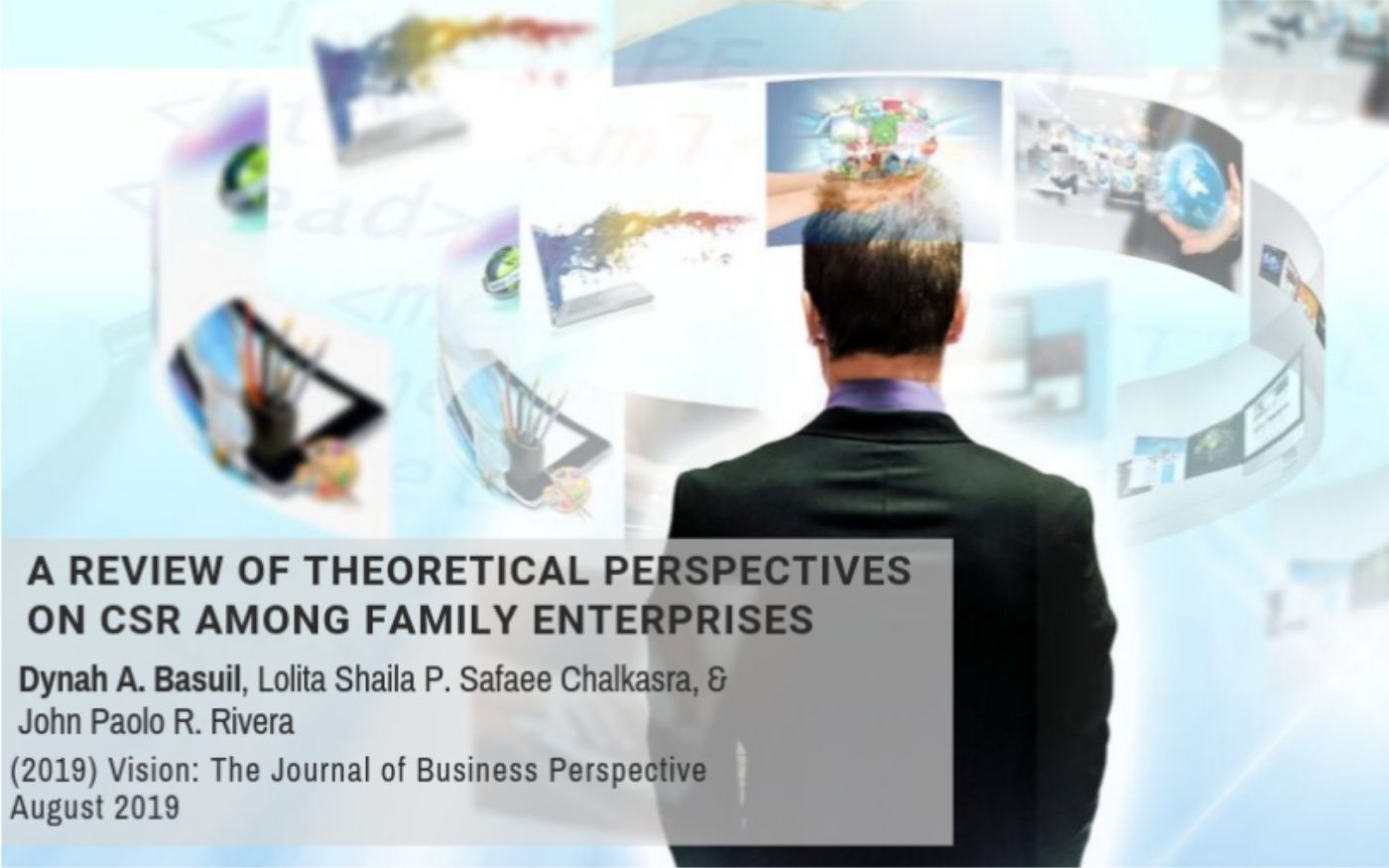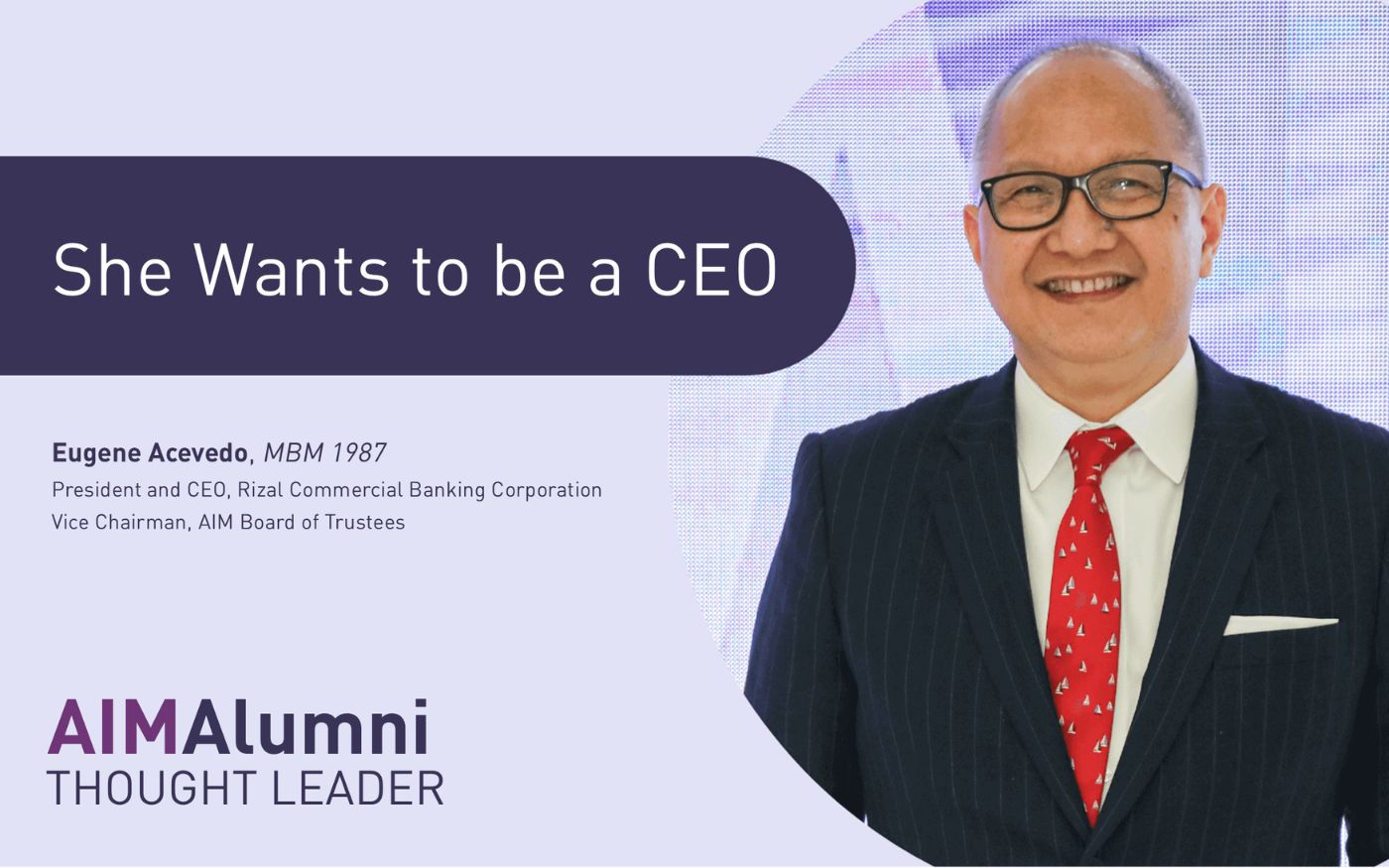Research by: Dynah A. Basuil, Lolita Shaila P. Safaee Chalkasra, John Paolo R. Rivera
Executive Summary
Corporate Social Responsibility (CSR) practices differ across regional and national contexts and depend on variations in regulatory frameworks. The global integration of economic systems and the adoption of universal standards of corporate social principles were propagated by international institutions such as the United Nations. They see businesses in a positive light when they adhere to global standards of social responsibility. Businesses are not only seen as economic agents but social actors with social responsibilities. Little is understood about the CSR of family firms, especially small- and medium-sized enterprises, in emerging economies. There is a scarcity of information of the types of CSR practices in small- to medium-sized family businesses because of the differences in the firm size, family corporate values and objectives, culture, national and regulatory framework of the country it is in, as well as the lack of information readily available through formal channels of disclosure reports. The heterogeneity of family firms in different country contexts makes it difficult to get a generalized picture of CSR practice and orientation. Overall, the stark variations in how businesses adopt CSR emanate from differences in strategies, practices and operations, and with varying reasons. At times, social agendas can be driven by local culture, expectations and priorities. In addition, CSR practices are dependent upon business culture, operations, industry practices, stakeholder expectation and the size and organization of the business firm.
This review can be a useful preliminary representation of theoretical perspectives of CSR activities among family enterprises that may serve business, academia and policymakers who may be interested to conduct a more in-depth empirical analysis of CSR practices. What makes family enterprises differ from non-family enterprises is the presence of the ‘family’ that contributes to differences in behaviour and orientation with regards to their CSR practices. This behaviour and orientation by family enterprises could be grouped between economic (purely utilitarian forms) and non-economic motivations (societal pressures). This could be translated into the type of CSR practices or activities such as philanthropy (as seen in many Asian societies), state-mandated regulatory compliance and disclosure procedures or non-traditional models that are seen emerging in various forms. These new forms of CSR have not been clearly defined but are typically a result to greater response to societal and environmental needs in an increasingly digitized and globalized society. Hence, the type of CSR initiative that a family enterprise will pursue depends on the different orientations that prescribe their behaviour and motivation, which also depends on its organizational structure and size.
To cite this article: Safaee-Chalkasra, L. S. P., Rivera, J. P. R., & Basuil, D. A. (2019). A review of theoretical perspectives on CSR among family enterprises. Vision: The Journal of Business Perspective, 23(3). https://doi.org/10.1177/0972262919860966.
To access this article: https://doi.org/10.1177/0972262919860966
About the Journal
Vision: The Journal of Business Perspective is a quarterly peer-reviewed journal of the Management Development Institute, Gurgaon, India published by SAGE Publications. This journal contains papers in all functional areas of management, including economic and business environment. The journal is premised on creating influence on the academic as well as corporate thinkers.





